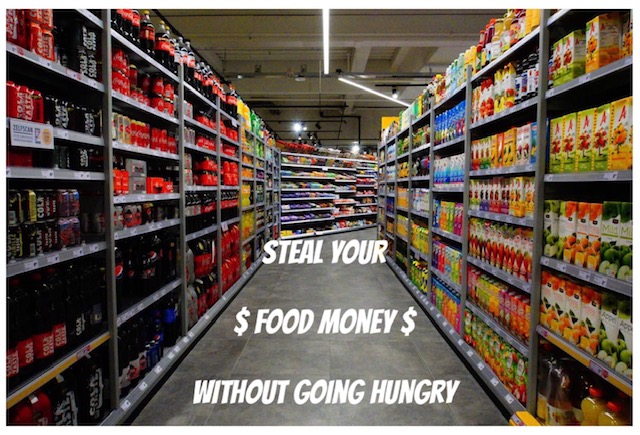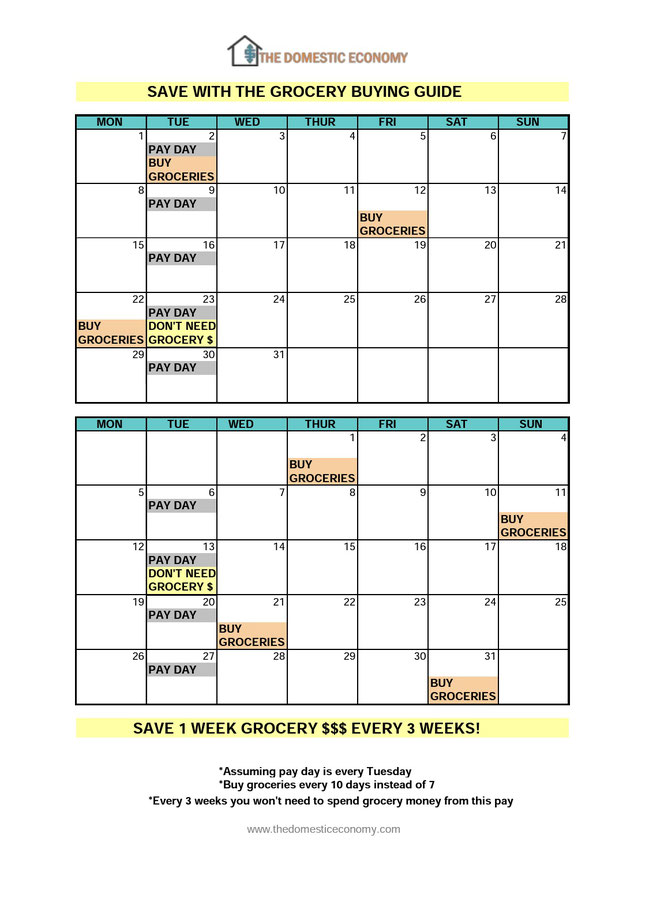Groceries are one of the highest costs in the household budget, usually coming in a close third to housing and bills. The difference with this expense however, is you are in control of this one.
Housing and bills are paid to companies dictating a rate we’ve willingly signed up for, but being in control of your grocery budget, you can do what ever you need to do. I love this expense because it’s flexible.
I’m a numbers girl; a money nerd who is always trying to outsmart her money to find as much of it as possible, without having to work more and I discovered a way to find extra money within my budget with a simple little trick when it comes to buying the groceries.
This only works if you buy groceries once each pay cycle. You can’t be on a budget and go to the supermarket every day. It usually doesn’t work as you’re buying what you want rather than what you need. It’s not really a plan. This is why I recommend buying your groceries once each pay cycle making it easier to stick to an allocated amount at the supermarket.
When you get to dissect this expense within your budget, YOU get to map
out the plan:
what to buy,
using how much money and
how often to stock up.
Try this.
If you’re a little flexible with your shopping days, stretch your grocery week from every 7 days to every 9 or 10. Or if paid fortnightly, stretch it to every 17 days.
By being more creative in the kitchen and eating more from the pantry your grocery days to pay days will overlap after a few weeks, leaving you with a full pantry, fridge and freezer AND spare money usually allocated for groceries. This for me happens every 4th time I buy my groceries (I buy every 17 days instead of fortnightly because I’m paid every 2 weeks).
Using the grocery buying guide above, as an example;
Pay day is Tuesday.
Buy groceries every 10 days.
On the 2nd of the month this pay buys groceries on the 2nd.
Pay day on the 9th buys groceries on the 12th of the month.
Pay day on the 16th pays for groceries on the 22nd.
Pay day on 23rd - This grocery money is not needed as you only bought groceries the day before.
YOU HAVE SPARE GROCERY MONEY!!
Pay day on he 30th buys groceries on the 1st of the next month. And so on.
On this chart, buying groceries every 10 days instead of 7 you will have a spare grocery amount each month! Every 3 weeks to be exact. That’s 17 times a year. What could you accomplish with that extra amount of savings?
It’s a fun way to ‘trick the budget’ and have left over grocery money without going hungry! It’s the best way when needing to find money fast by using it to pay off debt or to save for something (your emergency fund or maybe a car or holiday).
Sit down with a calendar and grey lead pencil. Work out your pay to shopping days and how often you can shop to overlap your grocery money.
Do you have any great budget tricks you use to save money?
$$$ Share your ideas in the comment section below $$$




Write a comment
Nikki (Wednesday, 30 December 2020 04:26)
I want a good s
SavePlus UAE (Tuesday, 08 April 2025 04:28)
Brilliant insights on stretching every dirham without compromising on nutrition! Practical, relatable, and perfect for today’s savvy shopper. https://saveplus.ae